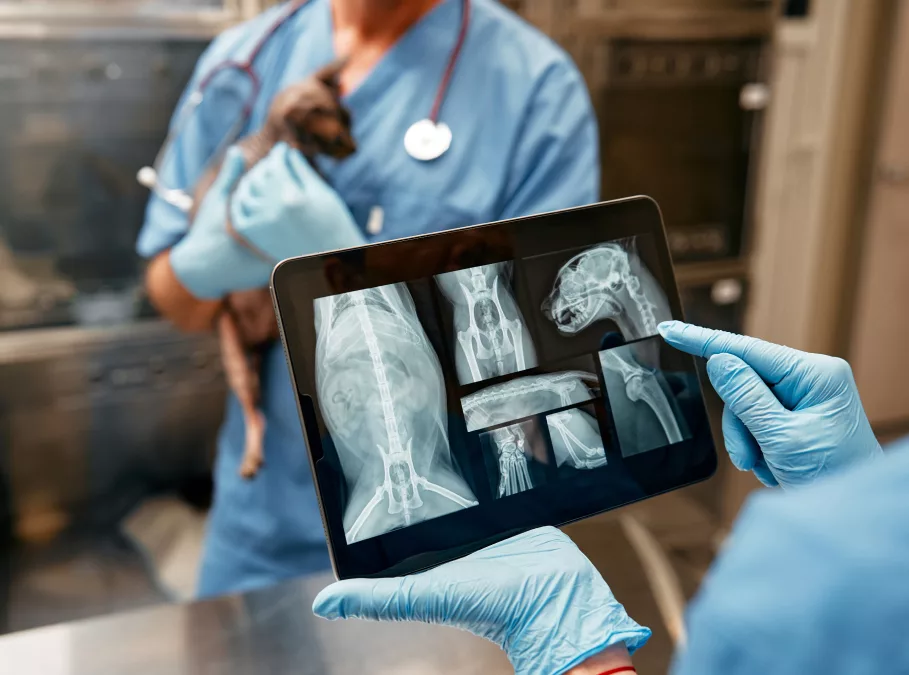Surgery
Surgical procedures can be a significant source of concern and anxiety for pet owners. That’s why we’re committed to providing anesthesia and surgery services that prioritize your pet’s safety, comfort, and swift recovery. Here’s a closer look at what sets our services apart:

Common Surgeries We Perform at Sarver Animal Hospital
Whether your pet is a puppy or kitten or a senior, there is a likelihood that they will require surgery at some point in their lifetime.
Our veterinary team performs a variety of surgeries, including but not limited to:
Individualized Anesthesia Safeguards
Each pet that comes through our doors for an anesthetic procedure undergoes a comprehensive physical examination and bloodwork prior to the procedure to asses overall health and internal organ function. This includes a detailed physical exam and bloodwork to ensure the pet’s health is stable and internal organs are functioning as they should.
This tailored approach extends to the anesthetic drugs we use – incorporating both injectable and inhalant anesthetics.
Cutting-Edge Surgical Monitoring
We know that closely monitoring during surgery is non-negotiable. Our commitment to advanced technology means we can track your pet’s vital signs in real-time. Heart rate, rhythm, blood pressure, oxygenation, and temperature are continuously measured and analyzed by veterinary technicians, offering you peace of mind and your pet the utmost in care and safety during their procedure.
Pain Management
Comprehensive pain management with multi-modal protocols is standard practice, ensuring your pet is as comfortable as possible at every stage of the surgical experience – before, during, and after the operation.
If appropriate, we also offer therapeutic laser treatments that complement traditional post-surgery care, speeding up your pet’s ability to return to their daily joy and vitality.
Remember, our veterinary professionals are here not just to treat your pet, but to guide you through the process of making informed decisions about their health care. Do not hesitate to reach out with any further questions or concerns.
Faqs
Frequently Asked Questions for Surgery
Our Surgery FAQs address many common concerns and questions about veterinary surgery, offering insights into the procedures, safety measures, and recovery processes we follow to care for your beloved pet.
Is surgery safe for my pet?
The safety of your pet is our utmost priority. While all surgical procedures carry a degree of risk, we minimize these risks through thorough pre-surgical assessments, including bloodwork and physical exams, to ensure your pet is a suitable candidate for anesthesia. Our state-of-the-art surgical monitoring and personalized anesthesia protocols further enhance safety during all procedures.
How long does recovery from surgery take?
Recovery time can vary depending on the procedure performed and the individual pet. For most routine surgeries, such as spays and neuters, pets may bounce back within a few days. However, more complex procedures could require weeks of recovery. We will provide you with detailed post-operative care instructions to foster your pet’s swift and safe recovery.
Will my pet be in pain after surgery?
We prioritize pain management and strive to keep your pet as comfortable as possible. Our veterinary team utilizes advanced pain management protocols tailored to your pet’s specific needs, and post-operative pain is closely monitored and managed with appropriate medications.
When will I know if my pet needs surgery?
Many surgical needs are diagnostic or preventative, so regular check-ups are key. Conditions that may require surgery can include dental disease, persistent lameness, or unexplained lumps. We’ll discuss all available options with you, recommending surgery when it is in the best interest of your pet’s health and quality of life.
Can I stay with my pet until they go into surgery?
We understand that staying with your pet can be a comforting experience. However, to maintain a sterile environment, we generally do not allow pet owners into the pre-surgical areas. Rest assured, our compassionate team will provide all the comfort and reassurance your pet needs.
What should I do to prepare my pet for surgery?
Preparation may include fasting your pet for several hours before anesthesia, restricting certain medications, and providing a calm environment. We will give you all the preparations required prior to the scheduled surgery during the pre-operative consultation.
How can I ensure a smooth recovery for my pet at home?
Post-operative care is critical for a smooth recovery. This may involve administering medication, adhering to activity restrictions, and monitoring the surgical site for signs of infection. Our team will provide comprehensive instructions for at-home care.
Remember, our veterinary professionals are here not just to treat your pet, but to guide you through the process of making informed decisions about their health care. Do not hesitate to reach out with any further questions or concerns.